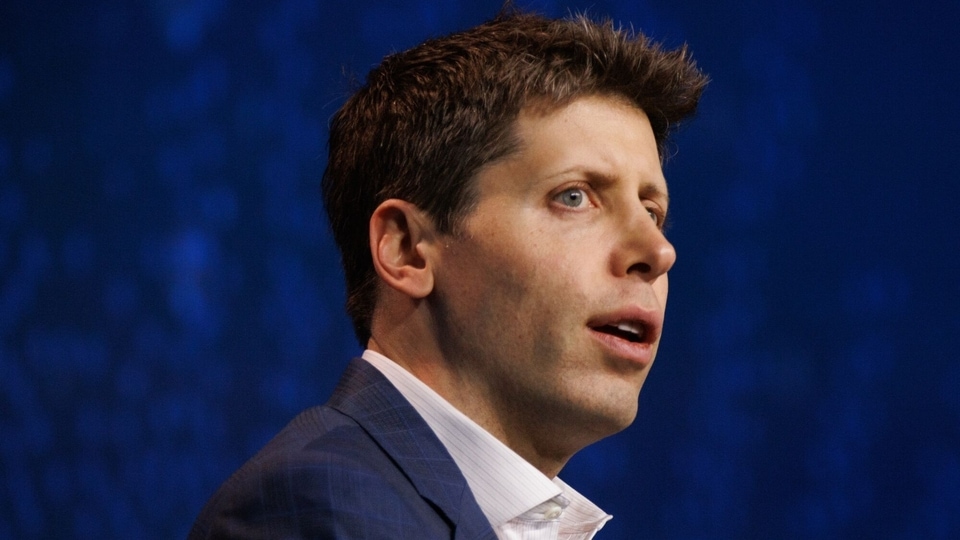Spreading talent thinly: OpenAI CEO Sam Altman’s AI juggling act looks dicey
For Sam Altman, running several ambitious business projects while fighting OpenAI’s fires would be foolhardy.

Sam Altman has a sensible, self-imposed tradition of writing a to-do list at the start of every year, jotting down all the things he wants to accomplish. This year's memo will feature a not-so-smart number of items. The OpenAI chief risks spreading his talents too thinly.
In addition to running the world's leading artificial intelligence company, Altman is committed to several mind-bendingly ambitious projects. He's working with Jony Ive, Apple Inc.'s former lead designer, to put AI models into new hardware devices, most recently hiring another former Apple executive for the new company. He also plans to start a new AI chip firm to compete with trillion-dollar market leader Nvidia Corp. Both projects will cost billions of dollars, so Altman has sought funding from those with the deepest pockets, including Masayoshi Son and Middle Eastern sovereign wealth funds. All the while, he's been running Worldcoin, a crypto project that aims to scan the eyeballs of billions of people.(1)
These are exciting projects that reflect Altman's tendency to swing for the fences. But the visionary who's become synonymous with OpenAI risks spreading himself too thin in what could become a ferocious year for the company. Among the urgent issues that need tackling: a string of lawsuits alleging copyright infringement, as well inquiries from both the US Federal Trade Commission and European regulators into OpenAI's close ties with Microsoft. If they turn into full-blown investigations, the company may have to reveal an uncomfortable amount of information about how it trains its models. In the meantime, its GPT Store finally launches next week, about two months late.
Altman also has to manage the fallout of a boardroom coup that briefly ousted him late last year. He may have won back his position as chief executive officer, but he still needs to work on regaining the loyalty of his clients. Executives at Walmart Inc., for instance, were so shaken by the leadership drama that they told managers to avoid going directly to OpenAI for AI tools, according to the Wall Street Journal. Several other firms who'd signed up for the company's services found themselves in a state of confusion after the coup, prompting some to diversify.
OpenAI's own staff need some more attention too. While nearly all of them signed a letter supporting Altman's reinstatement during the coup, many were financially motivated. That means they might not stay for the long haul. OpenAI's success until now had been so remarkable because of how small its research staff were — in the low hundreds, versus the armies of thousands at Alphabet Inc. and Meta Platforms Inc. That makes their continuing dedication to OpenAI all the more crucial.
But it will be hard for Altman to demand loyalty from his staff if he isn't being entirely faithful himself. And running multiple companies often doesn't work out. Elon Musk currently leads six companies, including Tesla Inc., SpaceX and X (formerly Twitter), and the latter has suffered the effects of a capricious leader stretched beyond capacity, with its value having dropped by two-thirds since Musk's 2022 purchase, according to one of his backers. Other CEOs have grappled with running just two companies, including Jack Dorsey's simultaneous leadership of Twitter and Square (which became Block), or Carlos Ghosn's steering of both Nissan Motor Co. and Renault SA. Dorsey's double management stint didn't last long, and Ghosn ended up an international fugitive.
Chief executives who run a single company already find themselves time strapped, and their number one time suck is attending to demands from their boards, according to a survey by management consultancy Russell Reynolds Associates. The people they neglect the most? Themselves.
Multi-tasking can sometimes work — as it did for Steve Jobs when he ran both Apple and Pixar. Harvard Business School Professor Andy Wu argues that Silicon Valley is fomenting a new breed of CEO who acts like a caffeine-guzzling puppet master, coordinating multiple companies and side hustles at once. “The traditional notion of a conglomerate is being transformed” to look more like a loose collection of firms surrounding a single figurehead, he says. So long as that leader delegates plenty of control to their deputies, they might even find valuable synergies between those different firms.
But making that work at a trying time for OpenAI seems risky. It's natural that the success of ChatGPT fueled Altman's confidence, as did those few extraordinary weeks last year when the 38-year-old became a globetrotting diplomat for AI, charming government leaders around the world. Altman has a natural inclination to help start companies, having been a long-time adviser to and one-time leader of the startup accelerator Y Combinator. But as he juggles an array of new business ventures, he'd be wise to curb some of those ambitions. He's turned OpenAI into an exceptional company — but his legacy may still be ruined.
Also, read these top stories:
The worst of CES 2024! The worst gadgets could harm us or our society and planet in such “innovatively bad” ways that a panel of self-described dystopia experts has judged them “Worst in Show.” Some interesting details in this article. Check it out here. If you enjoyed reading this article, please forward it to your friends and family.
Trust in AI? Not even if your eyes tell you to! They are lying. Technology will only get us so far in dealing with AI-generated photos, of which there will be many.
Find out what we must become here. If you enjoyed reading this article, please forward it to your friends and family.
The founder-CEOs are feeling the heat! What happened to OpenAI's Sam Altman, Bumble's Whitney Herd indicates that, as profitability becomes a priority at startups, pendulum swings back from the “visionary” founder to the professional. Check out the shocking change here.
Catch all the Latest Tech News, Mobile News, Laptop News, Gaming news, Wearables News , How To News, also keep up with us on Whatsapp channel,Twitter, Facebook, Google News, and Instagram. For our latest videos, subscribe to our YouTube channel.


























